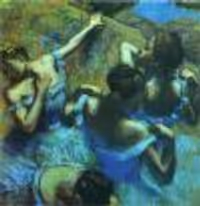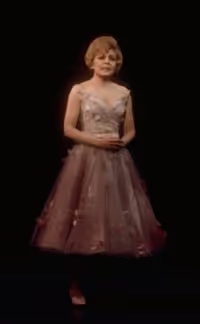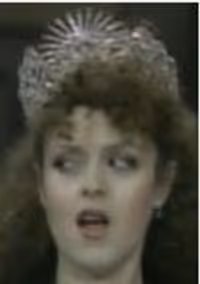Estate of Edward Albee Yanks Rights to Production Over Casting of Black Actor
#125Estate of Edward Albee Yanks Rights to Production Over Casting of Black Actor
Posted: 5/19/17 at 5:56pm
"A trans-woman as Martha or Honey? 'Cause I'm sure you'll agree it makes an enormous difference. (Actually, the more I think about it and consider the recurring symbol of "infertility" in the play, I'm not sure either casting will be a kindness to trans-people. I hope you'll rethink the play before you call the estate; at the very least, you'll need to be prepared with a good argument.)"
Not to take this thread even further off-track, but trans women are women and gender identity is not the same thing as race. Trans people don't walk around with a giant sign that says TRANS, so there is no reason whatsoever a trans person couldn't play any of the roles in Virginia Woolf. I can't speak for the Albee estate of course, but legally I don't think they could bar that casting on the basis of gender discrimination.
#126Estate of Edward Albee Yanks Rights to Production Over Casting of Black Actor
Posted: 5/19/17 at 5:58pm
HogansHero said: "I like it but what I am obsessively defending is not Albee but the established norms of literary licensing in America in 2017 and the seemingly simple notion that proceeding to produce a play and even going so far as to change the story without permission is a practice unworthy of defense regardless of how I feel about either the underlying legal framework or the merits."
If you didn't have such a hysterical kneejerk response to my original post, you would have seen I was too. I've twice said it's his prerogative to control his works. I think it's dumb choice, but it was still his prerogative.
"Most Sacred Text"? Sure, Jan.
Sally Durant Plummer said: "Also the estate might have been kinder and listened to a pitch about why they wanted to cast a black Nick intentionally if they had just gone through the proper channels."
The estate may have been nicer, but it still wouldn't be approved.
Wanting life but never knowing how
#127Estate of Edward Albee Yanks Rights to Production Over Casting of Black Actor
Posted: 5/19/17 at 6:01pm
It's clear they've approved other roles in the play to be played by black actors, so I hardly see why this would be so different (had they actually asked the estate instead of illegally promoting and casting a play they didn't have the rights to).
#128Estate of Edward Albee Yanks Rights to Production Over Casting of Black Actor
Posted: 5/19/17 at 6:01pm
icecreambenjamin said: "I would love to know how many of you are white, but I can clearly tell from some of your posts...."
You can tell we're white because we agree with August Wilson?
I can tell you are nine or ten-years-old. Go away and let the grown-ups talk.
#129Estate of Edward Albee Yanks Rights to Production Over Casting of Black Actor
Posted: 5/19/17 at 6:12pm
henrikegerman said: "At the risk of opening myself up to attack....
I can easily imagine that having Nick played by a black actor might be a very bad idea.
The way Nick is used for stud, the sexual dynamic between the characters, Nick's professional ambition in a very white world and willingness to play the academic ladder game and use his body to get ahead... all of that might take on an extremely different tenor with Nick being played by a black man. And might well smack of provocative racial stereotyping.
This play is already maximally provocative and bristlingly intense.
But with this added dimension, Who's Afraid of Virginia Woolf? might become a very vulgar and racist play. And certainly a very different experience which I can easily believe Albee might not have wanted.
"
Thank you, henrik, well said.
#130Estate of Edward Albee Yanks Rights to Production Over Casting of Black Actor
Posted: 5/19/17 at 6:16pm
Sally Durant Plummer said: "It's clear they've approved other roles in the play to be played by black actors, so I hardly see why this would be so different (had they actually asked the estate instead of illegally promoting and casting a play they didn't have the rights to)."
Did you read the memo from the estate? Because they clearly spell why they won't approve a black actor as Nick:
"Regarding the matter of your request to cast an actor who is African-American as Nick in VIRGINIA WOOLF?, it is important to note that Mr. Albee wrote Nick as a Caucasian character, whose blonde hair and blue eyes are remarked on frequently in the play, even alluding to Nick’s likeness as that of an Aryan of Nazi racial ideology. Furthermore, Mr. Albee himself said on numerous occasions when approached with requests for non-traditional casting in productions of VIRGINIA WOOLF? that a mixed-race marriage between a Caucasian and an African-American would not have gone unacknowledged in conversations in that time and place and under the circumstances in which the play is expressly set by textual references in the 1960's.
This provides clear evidence that productions of WHO’S AFRAID OF VIRGINIA WOOLF? must, indeed, continue to be cast per Mr. Albee’s intention, and according to the legal rights held by his estate, which works with great care to ensure that the author’s intent is upheld as closely as possible and with great consideration given to his stage directions and dialogue."
Wanting life but never knowing how
#131Estate of Edward Albee Yanks Rights to Production Over Casting of Black Actor
Posted: 5/19/17 at 6:24pm
Well, then the estate would have explained their reasons and stopped the production before they cast and promoted it. It was still illegal - no matter how you look at it. Besides, I'm sure a black George or Martha would be fine if people go through the Estate.
ScottyDoesn'tKnow2
Broadway Legend Joined: 1/22/14
#132Estate of Edward Albee Yanks Rights to Production Over Casting of Black Actor
Posted: 5/19/17 at 6:26pm
I think the discussions centering on respecting author's intent, how non-traditional casting with regard to race may impact the original intent of the work depending on the intent, and how actors of a certain color tend to be limited to the same productions over and over and have much more limited options compared to their white counterparts has been most educational and interesting to read. I'm glad there's such passion on both sides just because art should encourage this sort of empassioned debate and art tends to push traditional notions and boundaries.
Some authors want a stronger hand in subsequent productions than others. Either way, I think non-traditional productions should be done if the author allows it even if it turns out to be an utter fail just because failing is the best way to learn...if the creative team has the capacity to learn from it.
I do feel bad for passionate fans of the work who fear the bad or misguided production may be other people's first and only exposure to the work and will form an opinion on the work just based on that. But then we all deal with that when we see film adaptations of our fave theatre works and feel it's been butchered with the film audience reaction not being positive but not knowing there might be a superior version of the work out there.
#133Estate of Edward Albee Yanks Rights to Production Over Casting of Black Actor
Posted: 5/19/17 at 6:37pm
Sally Durant Plummer said: "I personally don't think "Wicked" is relevant to this discussion, especially since the color in question is always the same hue of green. Most audience members probably won't know the difference between the race of an Elphaba unless they explicitly looked at the headshots in the playbill (and I doubt a lot of hen look too closely).
"
How do you explain it, then, Sally? The show's been running in various iterations for over 10 years now and we've had what? Zero African-American Elphabas?
Either it's conscious racism (which I doubt) or there's some conceptual logic to the casting. I realize it is possible to read green as a stand-in for black in both the novel and show, but doing so should argue FOR casting AA actresses, not against.
#134Estate of Edward Albee Yanks Rights to Production Over Casting of Black Actor
Posted: 5/19/17 at 6:39pm
imeldasturn said: "Alexis Khadime is black and played elphaba in the west end for a while. But this is not the point and wicked is a terrible example for this discussion
"
No, it is related to the point and I didn't know that. (I don't keep track of anything WICKED and was making an assumption based on the post to which I responded.) Thanks for the info.
#135Estate of Edward Albee Yanks Rights to Production Over Casting of Black Actor
Posted: 5/19/17 at 6:40pm
"There’s no easy answer to that conundrum, but Streeter hopes that producers continue to broaden their visions of classic plays by casting outside the traditional restrictions. To playwrights, he offered: “Certainly it's your work, you should exert what control you think is necessary. One thing I would say to them is, 'Hey, after you're gone … let it go. Just let people do what they want with it.'”"
https://www.buzzfeed.com/louispeitzman/an-attempt-at-color-conscious-casting-has-opened-up-a?utm_term=.go9G7pZwx7#.xuppEOljJE
Honestly, I think there's damage that has been done. We wouldn't even be having this discussion if this didn't happen so publicly and handled so poorly by the estate. Had the production happened, we'd go see it and discuss how successful the directorial choice was. Now we will never really have that discussion or debate and we will live in hypotheticals.
ScottyDoesn'tKnow2
Broadway Legend Joined: 1/22/14
#136Estate of Edward Albee Yanks Rights to Production Over Casting of Black Actor
Posted: 5/19/17 at 6:44pm
I don't know why there haven't been more non-white Elphabas. If they don't want a bunch of Oz characters persecuting a woman of color, then the show really has become a safe Disney type of franchise with no teeth. It doesn't even want to do a story about discrimination based on a woman's skin color with a woman of a different skin color playing the role for fear it might make too much of a point of it and turn some of the audiences from red states off. Of course that could be totally off base and the truth is just simple institutional racism where actors of color are passed over even for roles that don't explicitly or implicitly call for a white actor.
Updated On: 5/19/17 at 06:44 PM#137Estate of Edward Albee Yanks Rights to Production Over Casting of Black Actor
Posted: 5/19/17 at 6:55pm
wonderfulwizard11 said: ""A trans-woman as Martha or Honey? 'Cause I'm sure you'll agree it makes an enormous difference. (Actually, the more I think about it and consider the recurring symbol of "infertility" in the play, I'm not sure either casting will be a kindness to trans-people. I hope you'll rethink the play before you call the estate; at the very least, you'll need to be prepared with a good argument.)"
Not to take this thread even further off-track, but trans women are women and gender identity is not the same thing as race. Trans people don't walk around with a giant sign that says TRANS, so there is no reason whatsoever a trans person couldn't play any of the roles in Virginia Woolf. I can't speak for the Albee estate of course, but legally I don't think they could bar that casting on the basis of gender discrimination.
"
(Personally, I think the subject of the thread is casting, at this point, so all the side roads are relevant.)
Your objections to my argument are apt. Yes, a trans-woman is a woman. But we are talking about appearances here, whether with regard to race or gender. Nobody cares if a blond Nick has a black grandmother; as long as he reads as reliably Northern European-American, it doesn't change the play.
So I assumed a trans-woman cast in a Queer Theater production of WOOLF would be apparently trans. If she appears cis (I hope I'm using the term correctly), then surely we'll all agree there is no issue--but also no point, in my mind, in queer theater terms. So I also assumed the woman cast would appear to be trans. And that leads to the problems I listed in my post. Another option would be to cast a trans woman who appears cis, but advertise the trans casting heavily; then I think the play will have been reduced to a parlor trick. "Can you spot her Adam's apple?"
#138Estate of Edward Albee Yanks Rights to Production Over Casting of Black Actor
Posted: 5/19/17 at 7:00pm
HeyMrMusic said: ""There’s no easy answer to that conundrum, but Streeter hopes that producers continue to broaden their visions of classic plays by casting outside the traditional restrictions. To playwrights, he offered: “Certainly it's your work, you should exert what control you think is necessary. One thing I would say to them is, 'Hey, after you're gone … let it go. Just let people do what they want with it.'”"
https://www.buzzfeed.com/louispeitzman/an-attempt-at-color-conscious-casting-has-opened-up-a?utm_term=.go9G7pZwx7#.xuppEOljJE
Honestly, I think there's damage that has been done. We wouldn't even be having this discussion if this didn't happen so publicly and handled so poorly by the estate. Had the production happened, we'd go see it and discuss how successful the directorial choice was. Now we will never really have that discussion or debate and we will live in hypotheticals. "
The end of the top part consists of the guy arguing against the laws that are on the books. His gripe is with Congress, which has not only maintained the hand of dead people but obscenely extended it.
As to the damage, what about the alternative. Read what henrikegerman wrote above-one of the best posts in this thread. Should a playwright allow his or her play to become a vehicle for racist stereotyping? How do we know that is not the intent here? Remember that Streeter submitted NOTHING in justification of doing this. The "principle" he is espousing is letting every director of a podunk production put whatever harebrained idea he or she has on a stage, with the playwright's name in bold face font. "Just let people do what they want with it." OK, then I guess it's ok if I come see your play and want to spraypaint the walls of the set because I don't like your color choice. Idiot.
ScottyDoesn'tKnow2
Broadway Legend Joined: 1/22/14
#139Estate of Edward Albee Yanks Rights to Production Over Casting of Black Actor
Posted: 5/19/17 at 7:00pm
I think if the actress is excellent, then the audience will forget that the actress is trans no matter how well one thinks she conforms to traditional presentations of cis females or covers as a cis woman. Especially in a queer production one would hope.
VintageSnarker
Broadway Legend Joined: 1/30/15
#140Estate of Edward Albee Yanks Rights to Production Over Casting of Black Actor
Posted: 5/19/17 at 7:07pm
GavestonPS said: "Sally Durant Plummer said: "I personally don't think "Wicked" is relevant to this discussion, especially since the color in question is always the same hue of green. Most audience members probably won't know the difference between the race of an Elphaba unless they explicitly looked at the headshots in the playbill (and I doubt a lot of hen look too closely).
How do you explain it, then, Sally? The show's been running in various iterations for over 10 years now and we've had what? Zero African-American Elphabas?
Either it's conscious racism (which I doubt) or there's some conceptual logic to the casting. I realize it is possible to read green as a stand-in for black in both the novel and show, but doing so should argue FOR casting AA actresses, not against.
This is a weird digression we're going on but Saycon Sengbloh and Lilli Cooper were Elphaba standbys.
#141Estate of Edward Albee Yanks Rights to Production Over Casting of Black Actor
Posted: 5/19/17 at 7:14pm
^^^ Got it. I misunderstood someone else's post to say Elphaba was always cast with a white woman.
Never mind.
#142Estate of Edward Albee Yanks Rights to Production Over Casting of Black Actor
Posted: 5/19/17 at 7:23pm
ScottyDoesn'tKnow2 said: "I think if the actress is excellent, then the audience will forget that the actress is trans no matter how well one thinks she conforms to traditional presentations of cis females or covers as a cis woman. Especially in a queer production one would hope.
"
What would be the point? There used to be famous female impersonators (see Julian Eltinge, for example) on Broadway. Some were fine actors, but the whole trend strikes me as akin to circus (unless, as in the case of B.D. Wong in M. Butterfly, the impersonation is key to the plot).
To me, to be queer in any meaningful sense, the actor must be seen to bend gender expectations. You are right that such a performance has to continually remind the audience that gender is being skewed or the audience forgets and substitutes authenticity for artifice. (Brecht discusses this process in general in his Short Organum.)
ScottyDoesn'tKnow2
Broadway Legend Joined: 1/22/14
#143Estate of Edward Albee Yanks Rights to Production Over Casting of Black Actor
Posted: 5/19/17 at 7:27pm
But trans women are not female impersonators. I'm actually not really understanding what you're stating in your posts.
#144Estate of Edward Albee Yanks Rights to Production Over Casting of Black Actor
Posted: 5/19/17 at 8:56pm
ScottyDoesn'tKnow2 said: "But trans women are not female impersonators. I'm actually not really understanding what you're stating in your posts.
"
Well it depends on what level you're talking about. As someone said earlier (it might have been you) - in terms of gender identity they are not female impersonators - from their perspective & identity they are female. But identity is a very personal and introspective cognition. From an external physical view they are quite literally impersonating the physical/biological aspects of the female sex.
#145Estate of Edward Albee Yanks Rights to Production Over Casting of Black Actor
Posted: 5/19/17 at 9:21pm
HeyMrMusic said: ""There’s no easy answer to that conundrum, but Streeter hopes that producers continue to broaden their visions of classic plays by casting outside the traditional restrictions. To playwrights, he offered: “Certainly it's your work, you should exert what control you think is necessary. One thing I would say to them is, 'Hey, after you're gone … let it go. Just let people do what they want with it.'”"
https://www.buzzfeed.com/louispeitzman/an-attempt-at-color-conscious-casting-has-opened-up-a?utm_term=.go9G7pZwx7#.xuppEOljJE
Honestly, I think there's damage that has been done. We wouldn't even be having this discussion if this didn't happen so publicly and handled so poorly by the estate. Had the production happened, we'd go see it and discuss how successful the directorial choice was. Now we will never really have that discussion or debate and we will live in hypotheticals.
"
Well, the recent revival of Glass Menagerie is one of the examples of purists going against a production because it doesn't carbon copy the author's "intentions" after he's already gone. People even rail against cuts in Pacific Overture even when Sondheim himself already agreed on them.
#146Estate of Edward Albee Yanks Rights to Production Over Casting of Black Actor
Posted: 5/19/17 at 9:56pm
And yet Sally Field is nominated for a Tony Award and Pacific Overtures got great reviews. As a huge fan of Pacific Overtures, I enjoyed a new perspective on the show. And we just saw Ivo van Hove win a Tony Award for a radically different production of a beloved American classic (same with John Doyle and Sweeney Todd). Purists will always find something to complain about because no director's vision will ever line up completely with their ideal production. But that's theatre, that's art. It's ever changing and a living, breathing, evolving medium.
I don't condone how Streeter went about this situation nor do I think he's very eloquent in arguing his point. I do think he was wrong to advertise anything before securing the rights, and I don't like how publicly the entire thing has been handled by him or the estate. But without directors' visions and producers taking chances and pushing boundaries, we'd have the same stodgy stagings with the same types of performers without much variation. We'd never get revivals like Chicago or Cabaret that erased the original productions and have become the new classic. Again not saying it pertains to this example, but I applaud the idea to try something new.
#147Estate of Edward Albee Yanks Rights to Production Over Casting of Black Actor
Posted: 5/19/17 at 10:05pm
@HeyMrMusic, I agree about all that but in America we have these ugly things called property rights. I don't like that my neighbors have weeds in their yard but that's how it works here.
#148Estate of Edward Albee Yanks Rights to Production Over Casting of Black Actor
Posted: 5/19/17 at 10:14pm
So you're saying Albee is that man yelling, "Get off my lawn"? ![]()
bk
Broadway Legend Joined: 7/20/03
#149Estate of Edward Albee Yanks Rights to Production Over Casting of Black Actor
Posted: 5/19/17 at 10:15pm
HogansHero said: "bk said: "If this small theater in Portland and, more specifically, Mr. Streeter, hadn't put this all over Facebook and made sure it got to the media, no one would have known about it. The Estate did what it felt it should do and it did not do it publicly - read their statements, as they even mention the Facebook post."
What does that have to do with anything? If a tree falls in the forest...
If the estate did something wrong (as I have said I don't think it has, others seem to disagree whether rationally or not) then the fact that it might have escaped notice is irrelevant. It strikes me as morall bankrupt to suggest otherwise.
This thread, like all of them that tread on race-related subjects, carries a lot of baggage in America (and elsewhere, perhaps to a lesser extent and/or differently). We think we are more progressed than we are, even in the theatre where true color blind casting has long ago been widely accepted as a norm (Wilson notwithstanding). But part of what we now deal with is confrontational casting, where someone is trying to bring a different set of stereotypes into a play (as in this case or a la Hamilton). These choices can be exploitation or empowerment or a lot of other steps along the continuum.
"
It has to do with several posts that were calling out the Estate for handling this "poorly" in a very public way. My POINT was that it was public because Mr. Streeter, hoping to get noticed, made it public. End of point.
Videos








